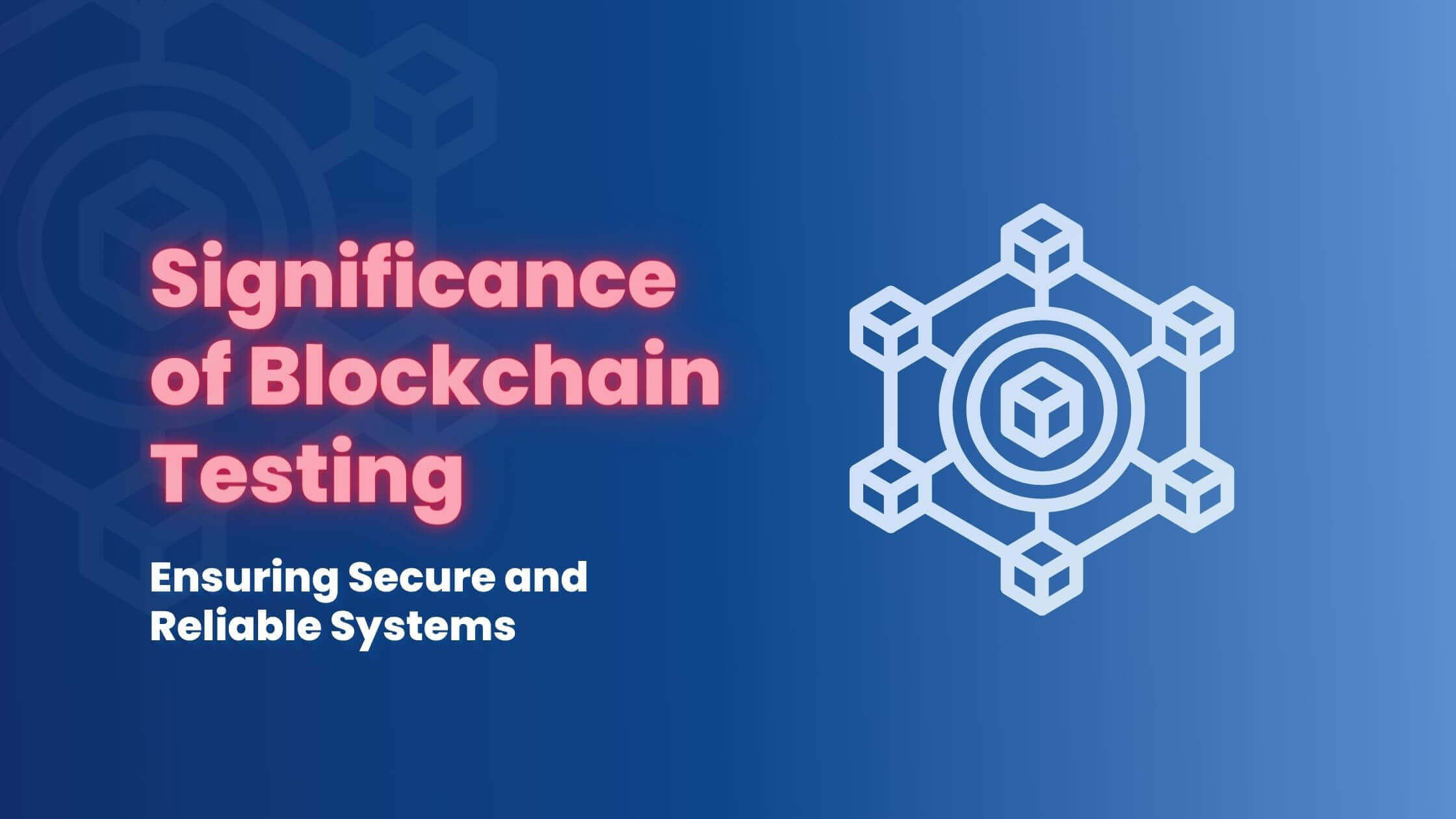Blockchain technology has revolutionized the digital landscape with its unrivaled security, transparency, and efficiency. As blockchain continues to gain widespread adoption across various industries, the importance of rigorous testing methodologies becomes paramount. This article explores the significance of blockchain testing, delving into its key aspects, methodologies, and tools that contribute to the successful deployment of secure and reliable blockchain systems.
What is Blockchain Technology?
Blockchain innovation is a progressive idea that has collected critical consideration lately. It is a decentralized, immutable, and transparent digital ledger that enables secure and tamper-resistant record-keeping. The core principle of blockchain is to create a trustless and distributed system where participants can transact and exchange information without relying on a central authority.
Also read: API Testing and its Benefits
A blockchain operates on a distributed network of computers known as nodes, which collaboratively validate and store transactions or information. Consensus mechanisms, such as proof-of-work or proof-of-stake, ensure that the majority of nodes in the network agree on the validity of transactions, making it difficult for malicious actors to manipulate the data.
The blockchain structure consists of a series of interconnected blocks, with each block containing a cryptographic hash of the previous block. This chaining ensures the integrity and immutability of the data stored within the blockchain, making it nearly impossible to alter or delete information without disrupting the entire network.
Key Features of Blockchain Technology
1. Transparency: Since the ledger is distributed among multiple nodes, anyone with network access can view and verify transactions recorded on the blockchain, promoting accountability and trust.
2. Decentralization: Blockchain’s decentralized nature eliminates the need for intermediaries in many processes, enabling direct peer-to-peer transactions through smart contracts and increasing efficiency while reducing costs.
3. Diverse Applications: Beyond cryptocurrencies like Bitcoin, blockchain technology has found applications in finance, supply chain management, healthcare, voting systems, and more, enhancing security, traceability, and efficiency in these sectors.
The Importance of Blockchain Testing
The implementation of blockchain technology requires thorough testing to ensure its functionality, security, and reliability. Comprehensive blockchain testing addresses various aspects, methodologies, and tools, including:
1. Functional Testing: This type of testing examines the core functionalities of the blockchain system, such as transaction processing, smart contract execution, consensus mechanisms, and data validation, ensuring that the system behaves as expected.
2. Performance Testing: Evaluates the scalability and responsiveness of the blockchain network under varying workloads and conditions, optimizing system performance and identifying bottlenecks.
Also read:- SBI Term Insurance Plans
3. Security Testing: Focuses on identifying vulnerabilities and weaknesses in the blockchain system, including threat modeling, penetration testing, and vulnerability assessments, to ensure the network’s robust security.
4. Integration Testing: Validates the interoperability of blockchain systems with external components, such as wallets, exchanges, or third-party applications.
5. Smart Contract Testing: Verifies the correctness, functionality, and security of smart contracts to prevent potential exploits and vulnerabilities.
6. Consensus Mechanism Testing: Evaluates the effectiveness and reliability of the chosen consensus algorithm, such as proof-of-work (PoW) or proof-of-stake (PoS).
7. Blockchain Network Testing: Focuses on the overall behavior and performance of the entire blockchain network, ensuring data consistency and integrity.
8. Usability Testing: Assesses the user-friendliness and intuitiveness of blockchain applications and interfaces for technical and non-technical users.
9. Interoperability Testing: Checks the compatibility and seamless integration of blockchain systems with other existing systems or protocols.
10. Upgrade and Migration Testing: Validates smooth transitions between blockchain versions or platforms.
Also read:- write for us tech
Also read:- Technology write for us
Also read:- write for us technology blogs
11. Compliance Testing: Verifies adherence to industry-specific regulatory and legal requirements.
12. Disaster Recovery Testing: Assesses the system’s resilience and ability to recover from catastrophic scenarios.
13. Governance Testing: Evaluates the decision-making processes and overall governance mechanisms of the blockchain network.
Also read: XDR Security and Its Key Components
Conclusion
Blockchain testing service is essential to ensures the reliability, security, and functionality of blockchain technology. By conducting thorough testing and leveraging specialized tools, organizations can identify and address potential issues, mitigate risks, and build robust and trustworthy blockchain solutions. In doing so, they can fully harness the transformative potential of blockchain technology across various industries.
Author bio:
Hello, I am a professional SEO Expert & Write for us Technology blog and submit a guest posts on different platforms- we provides a good opportunity for content writers to submit guest posts on our website. We frequently highlight and tend to showcase guests.




